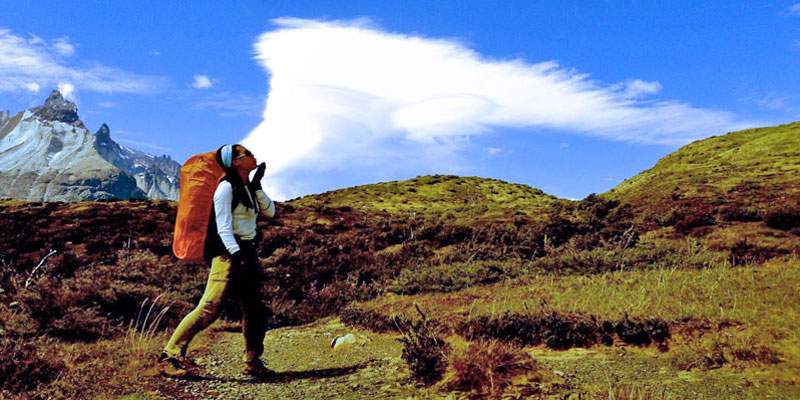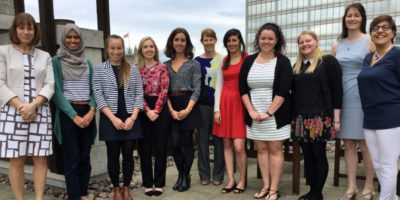Véronique Trang is a freelance consultant and project manager who helps large corporates and start-ups experiment collaborations – she is currently contracting as a senior manager at the Unilever Foundry, the Unilever platform that connects Unilever brands and innovative tech start-ups. Before corporate innovation, Véronique had piloted a freshly squeezed fruit juice concept in Paris, her first step in the entrepreneurial world, after having worked in strategy consulting at Ernst & Young and marketing at Ford Motor Company and Fashion TV.
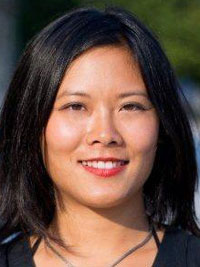
“…I work with start-ups and corporates to encourage an entrepreneurial mind set. I contribute to business disruption by imagining how the latest hot tech can be used by brands. I also initiate and manage start-up / corporate pilot partnerships. The job I dreamed of literally came to me…”
Learning that “everything is possible”
I was born in a family of Chinese-Cambodian refugees who arrived in France in the 70s, fleeing the Polpot genocide. After doing odd jobs on their arrival, they became entrepreneurs to thrive and offer a better life for the family. They ended up launching a jewellery retail business.

Although hard work, it looked fun and they made it look like fairly do-able, especially for people who didn’t even speak proper French. I have been raised in the mindset of “everything is possible” – I guess this was their motto because they had nothing to lose.
I was born and educated in Paris, and I went to a French Business School (ISC – Institut Supérieur de Commerce), and entered the corporate world, working with big names like Ford or Ernst & Young (now known as EY). I moved to London to work for EY in 2007. I learned a LOT and worked hard, especially to overcome language challenge, as English is not my native language. After three and a half years, at 27 years old, I felt it was time for me to have a break from the rat race and get head space to be more creative.
Time for a break from the rat race and to get head space to be creative
I went traveling the world for 14 months, from Asia, Oceania to South America, I created videos and a blog about education and social issues called Fabpeople Fabplaces. I interviewed and met with local people whenever possible with www.couchsurfing.com. I was so inspired by what I saw and had millions of business ideas.
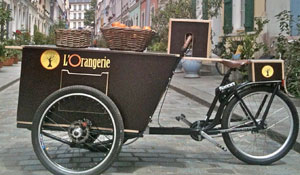
I created a minimum viable product that I piloted in Paris, but sadly, it didn’t work, and after the world trip and a venture, I was broke. I needed to get paid work, and wanted to stay close to the start-up world. The Corporate Innovation space wasn’t very developed in Paris then, so, I went back to London.
Working with Unilever Foundry
Unilever Foundry had just launched in 2014 and I happened to be working with Unilever on a small freelance contract. Unilever Foundry is a platform for start-ups and innovators to engage, collaborate and explore business ideas with Unilever and its 400+ brands. I was lucky to end up being the first ‘recruit’ in the team and started to work on designing a framework for experimentation that would benefit both Unilever brands and innovative tech start-ups.
I work with start-ups and corporates to encourage an entrepreneurial mind set. I contribute to business disruption by imagining how the latest hot tech can be used by brands. I also initiate and manage start-up / corporate pilot partnerships. The job I dreamed of literally came to me!
My work on a day to day basis
‘Pilot’, ‘experimentation’, ‘future of marketing’, ‘collaboration’, ‘innovative tech start-ups’ and ‘new business models’ are the key words and phrase I use every day. My work is a mix of exploring new tech areas, consulting with brands and helping to manage tech search or to pilot partnerships with start-ups for them. An example of project I worked on is to help their Persil brand collaborate with start-ups to deliver digital on-demand laundry services.
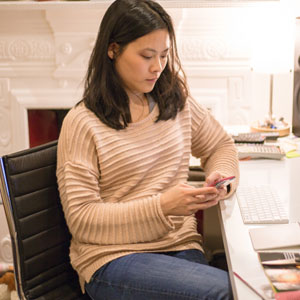
Get disruptive or get left behind
Large corporates might be leading in their sector today but are always threatened by losing share for smaller players so they have no choice but to collaborate with the Ubers and Airbnbs of tomorrow.
Start-ups are disrupting traditional business models and it is actually a question of survival to partner with them sooner rather than later, to make a difference. There is also a real appetite for large organisations to learn working more like a start-up – more agile working, faster pace, shortcutting bureaucracy process, and being more open to take risks.
Where the large and the small organisations meet, there is a fantastic breadth of opportunities for both sides: Scale opportunity and credibility for start-ups while for corporate it’s the test and learn opportunity at low risk and cost before taking long term commitment with a strategic partner.
How can female led start-ups make their mark
There are clear challenges for women in the tech space. According to the Harvard Business Review, in venture capital-financed, high-growth technology start-ups, only 9% of entrepreneurs are women. Note that only 9.7% of all partners at venture capital firms are women, and it is tough for female entrepreneurs to get venture funding from all-male venture capital firms, or even have a chance of a successful exit.
Equally, did you know that at the top of the corporate world just 5% of leadership positions in the technology industry are held by women? If we wanted more women as CEOs, a change would need to happen at venture capital level – more female partners in VC firms should improve the chances of success for the female-led start-ups they finance.
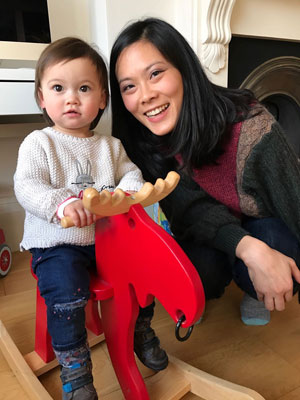
As regards to my experience with entrepreneurs, needless to say that I met less female than male start-up founders. I have met some fantastic women, like Julia O’Toole of Lookiimedia, Alex Depledge, founder of Hassle, Lisa Williams from TantrumXYZ, June Angelides from Mums in Technology and Ursula Brunetti from Mumdays, who really appeared to me as superwomen, extremely hands on, bold, courageous, and also super driven, especially considering they also have a family to manage.
It’s one thing to be a working mum and even more a mum who runs a business. I would love to see more female founder success stories and to get there – the whole tech and start-up space must become more representative of women via networks, support and venture capital firms etc.
Challenges (and opportunities) of being a BAME woman in this space
There are already fewer women in the tech space and BAME women are also less represented, at least in the UK (but better represented in the US, I suppose). I guess being a BAME woman makes people remember you more easily.
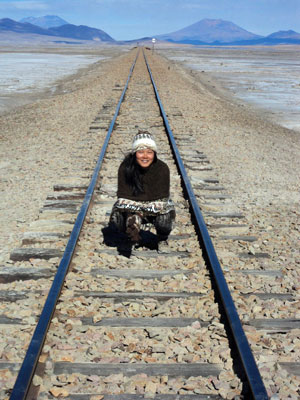
I am French, I was born and educated in Paris. In London, I am a French lady that appears to have Asian roots. In Paris, I am a Chinese woman who speaks very good French – I sometimes get the “How come you speak French soooo well?” type of question… So, it’s definitely a cultural shift that needs to be made. I would say that the UK is more diversity inclusive than in France, certainly in my experience. On the good side, being from BAME background triggers more interest and questions, and it gives you more to speak about if you run out of chit chat topics.
Embracing flexible working
I am lucky enough to work regularly with a client that is a strong advocate for flexible working. I am generally in the office, but I do sometimes need to work flexibly.
But there are so many mums who are forced to quit their jobs because they can’t find a fit that work with their family life – nursery pick-ups, intensive or extra hours, work travel etc. Therefore, a lot of mums become entrepreneurs or find ways to work as freelancers. It is a challenge that most of us are not prepared to face when we graduate from uni with our Masters in X, Y or Z. And that’s a big loss for corporates. You will tend to see mothers being very efficient and prioritising their work pretty well to meet their targets. Let’s not forget that value is not measured by time, but by results.
Another big issue is salary gap. This gap suddenly gets very big when a woman becomes a mum.
Coming up next for me and my clients
There is still a LOT to explore in corporate innovation via collaborating with start-ups. A lot of corporates are trying but there are many pitfalls and challenges to overcome. So, I will hope to continue to contribute make these two worlds meet and create more opportunities for experimentation, and hopefully open door to longer term collaborations.
Although I am already working on projects that have social impact and are sustainability focus, I would love to do that even more. I would love to help more social enterprises or business for good to become more sustainable via collaborating with large corporates.
https://www.linkedin.com/in/veroniquetrang/
https://twitter.com/veroniquetrang

